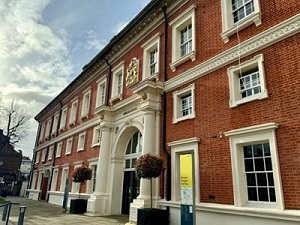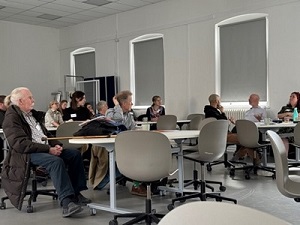Events
Heritage & Education Workshop
On 15 March 2024, we held a workshop at Goldsmiths, University of London, that brought together academics, representatives from UK A-Level exam boards, archivists and heritage professionals to discuss the reign of Charles I (1625-49) and to devise a way to mark the four hundredth anniversary of the accession of Charles I to the thrones of England (including Wales), Ireland and Scotland.


The workshop included around thirty representatives from major exam boards, archives and heritage organisations (including AQA, OCR, Pearson, WJEC, Historic Royal Palaces, the National Archives and the Bodleian Library). The discussions highlighted how museums, archives and heritage sites could map their expertise onto key themes in current A-Level History courses and participants identified best practices for creating a digital resource that would attract students from a wide range of backgrounds to study the seventeenth century. After fast-paced ten minute presentations in the morning, the afternoon saw the participants break off into four groups, all discussing specific elements of the reign of Charles I and how they might be presented in a digital resource to best effect. The discussions that took place at the workshop will feed into a bid to the AHRC to support the development of a large-scale digital resource consisting of archival documents, rich images and audio all exploring the reign of Charles I.
Charles 400 Online Teacher Focus Groups
Throughout early 2024, the project team has run several online focus groups with teachers, set up by exam boards. This has enabled us to engage in discussion with teachers who are currently teaching Stuart History at A level. The focus groups have enabled us to gain insight into the teacher experience of delivering the history of Charles I’s reign. Discussions, led by Dr Charlotte Brownhill, have explored aspects of Stuart History they enjoy teaching, as well as challenges that they face. Teachers also fed back on how their students respond to this topic. The focus groups have also enabled us to explore teachers’ aspirations for a broader curriculum, which would enable them to communicate the richness of this period to A level students. We have been delighted by the response from teachers who have been very keen to engage with the project and to feed in ideas about the kind of resource they and their students would benefit from.
